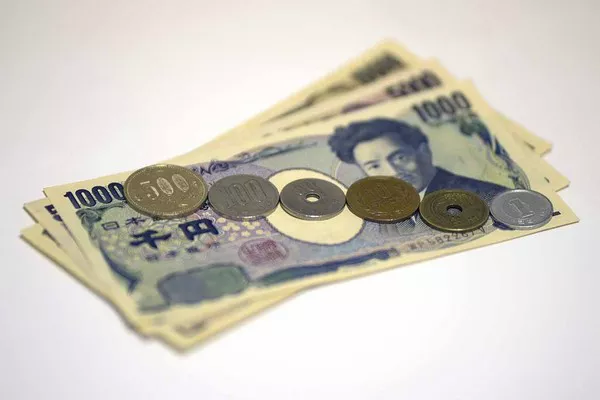In the realm of international finance, understanding the intricacies of currency exchange rates is paramount, especially when dealing with prominent financial institutions like Chase Bank. For individuals and businesses seeking to delve into the Japanese Yen (JPY) exchange rates offered by Chase Bank, this article aims to provide a comprehensive exploration of the factors influencing these rates, the process of currency exchange, and strategies for obtaining optimal rates.
The Importance of Exchange Rates:
Exchange rates play a pivotal role in facilitating international trade, travel, and investment. As one of the major currencies in the world, the Japanese Yen holds particular significance, and individuals often turn to reputable financial institutions like Chase Bank for their currency exchange needs.
Understanding Chase Bank Japanese Yen Exchange Rates:
Real-Time Rates:
Chase Bank, like many financial institutions, provides real-time exchange rates for a variety of currencies, including the Japanese Yen. These rates are subject to constant fluctuations based on market dynamics and economic factors.
Online Currency Converter:
Chase Bank offers an online currency converter tool on its website, allowing customers to check the latest exchange rates conveniently. This tool is useful for individuals planning transactions involving Japanese Yen and helps them stay informed about the current market rates.
Branch Services:
For customers who prefer a more hands-on approach, Chase Bank has physical branches where currency exchange services are available. Visiting a local branch allows customers to engage with bank representatives directly, seek guidance, and conduct transactions in person.
Factors Influencing Chase Bank Japanese Yen Exchange Rates:
Global Economic Conditions:
The global economic landscape significantly influences currency exchange rates. Economic indicators such as GDP growth, inflation, and employment rates impact the value of currencies, including the Japanese Yen. Chase Bank’s exchange rates are responsive to these global economic conditions.
Interest Rates:
Central banks, including the Bank of Japan, play a crucial role in setting interest rates. Higher interest rates can attract foreign investment, potentially strengthening the Japanese Yen. Chase Bank considers these interest rate dynamics when determining its exchange rates.
Market Demand and Supply:
The basic economic principles of demand and supply also affect currency exchange rates. If the demand for Japanese Yen is high relative to its supply, the exchange rate may increase, and vice versa. Chase Bank’s rates reflect these market dynamics.
Chase Bank’s Operational Costs:
Chase Bank, like any financial institution, incurs operational costs in providing currency exchange services. These costs, including overhead, staffing, and technology expenses, can influence the rates offered to customers.
See Also: 4 Factors Influencing Exchange Rates for the Japanese Yen
The Process of Exchanging Japanese Yen at Chase Bank:
Account Ownership:
To engage in currency exchange at Chase Bank, individuals typically need to have an account with the bank. This can be a savings account, checking account, or a specific foreign currency account, depending on the customer’s preferences and needs.
Visit a Local Branch:
For those who prefer in-person transactions, visiting a local Chase Bank branch is an option. The bank’s representatives can assist with the currency exchange process, answer questions, and provide information about the latest rates.
Online Transactions:
Chase Bank offers the convenience of online banking, allowing customers to initiate currency exchange transactions from the comfort of their homes. Online transactions are typically conducted through the bank’s secure website or mobile app.
Currency Exchange Limits:
Customers should be aware of any currency exchange limits imposed by Chase Bank. These limits may vary based on the type of account and the customer’s relationship with the bank. Larger transactions may require additional documentation and approval.
Identity Verification:
To comply with regulatory requirements, customers engaging in currency exchange transactions are often required to verify their identity. This process may involve presenting government-issued identification and proof of address.
Transaction Fees:
Chase Bank may apply transaction fees to currency exchanges. These fees can vary based on the transaction amount, the type of account, and the specific terms and conditions of the exchange. Customers should be aware of these fees to calculate the overall cost of the transaction accurately.
See Also: How to Buy Japanese Yen (JPY) – Just 8 Steps
Strategies for Obtaining Optimal Exchange Rates at Chase Bank:
Monitor Exchange Rate Trends:
Keeping an eye on the historical and current trends of the Japanese Yen exchange rates can provide insights into potential future movements. Customers can use this information to time their currency exchanges strategically.
Utilize Online Tools:
Chase Bank’s online currency converter and other tools provide real-time information on exchange rates. Utilizing these tools can help customers stay informed and make decisions based on the latest market data.
Consider Hedging Instruments:
For individuals or businesses with exposure to currency risk, Chase Bank may offer hedging instruments. These financial tools, such as forward contracts, can help lock in a specific exchange rate for future transactions, providing a level of certainty in an unpredictable market.
Diversify Currency Holdings:
Diversification is a risk management strategy. While engaging with Japanese Yen, consider maintaining a diversified currency portfolio to spread risk and potentially capitalize on movements in multiple currencies.
Build a Relationship with the Bank:
Developing a strong relationship with Chase Bank, whether through regular transactions or maintaining higher balances, may provide customers with benefits such as preferential exchange rates or reduced fees.
See Also:
Conclusion:
Navigating the landscape of Japanese Yen exchange rates at Chase Bank involves a combination of understanding the factors influencing rates, utilizing available tools, and adopting strategic approaches to currency transactions. Customers seeking to buy Japanese Yen can leverage the convenience of online tools, visit local branches for personalized assistance, and stay informed about global economic conditions impacting exchange rates.
As the financial landscape continues to evolve, those who approach currency exchange with a well-informed and strategic mindset will be better positioned to optimize their transactions and meet their international financial needs effectively through the services offered by Chase Bank.


